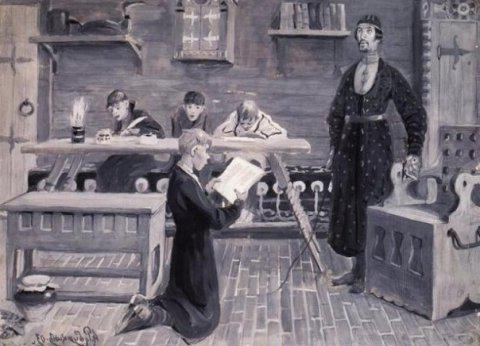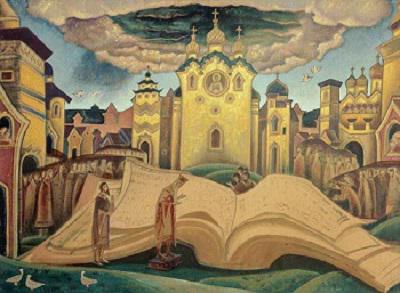The Higher School of Education in Russia is a unified system that includes more than 650 state-owned universities. About nine million people are educated in them, including a large number of citizens from foreign countries. Training is conducted in several areas: medical, engineering, financial, economic and humanitarian. The existing disciplines today allow you to get higher education in any specialty and for absolutely anyone who has a certificate of graduation from a secondary (school) or special educational institution (vocational school).
Higher School of Russia
The foundation of Russian higher education is based on the world-famous school, the unique knowledge and discoveries of Russian scientists, as well as the irresistible craving of our predecessors for science.
Higher education in Russia is not an empty phrase. It is supported by the practical skills of highly qualified teachers, many of whom have a Ph.D. degree, and some carry the proud title of professor. Higher school provides an opportunity not only to gain good knowledge, skills, professional skills, but also a prestigious education, since a Russian diploma is appreciated in many foreign countries.
Russia is a country with a centuries-old history, traditions, cultural heritage, incomparable nature and its wealth, with its own way, customs and national characteristics. Getting higher education, a person imperceptibly for himself becomes a part of all this power, joins the experience of generations, history, becoming a part of the Russian soul.
Higher Education System in Russia
Like it or not, the topic of higher education is inextricably linked with history. In particular, with the history of its formation. The system that has developed to date has not appeared immediately. It was developed over the centuries, achieved over the years.
Modern higher professional education in Russia has a multi-level system in which different degrees of training are distinguished: the main term for obtaining a specialty is 5 years, after which the student is qualified as a “specialist”. Further, you can continue to study in graduate school, it takes three years. In addition, there is the opportunity to obtain academic degrees "Bachelor of Science" and "Master of Science", the term of study is four and two years, respectively.
The situation is somewhat different if you decide to graduate at a medical school. In this case, the training time depends on the chosen specialization: the student receives a diploma of a clinical psychologist, pharmacist or dentist in five years. He needs to study for six years in the course of pediatrics, sports medicine and medical medicine. Further education in a higher medical educational institution can be continued by enrolling in an internship (1 year). Depending on the specialty and the wishes of the doctor, one can complete clinical residency (from 2 to 5 years). Or enter graduate school, the term of study in it is three years.
Highlights in the HE system
The academic year in Russian higher schools lasts from September 1 to June 30. It is divided into two semesters, each of which ends with a session (winter and summer). During it, students pass numerous tests, exams in past disciplines. Students with higher education also have vacations. And they begin just after the sessions. Winter lasts two to three weeks, summer - two months. The student passes the most difficult exam tests in the last year of his studies. In winter, he passes state examinations, they include questions on all studied disciplines. And in the summer he defends his independent thesis.
Education at Russian universities is carried out in Russian and is conducted in three forms of study: full-time (full-time), part-time (allows you to work simultaneously with study) and evening (conducted in the evening or on weekends). Recently, many non-governmental higher schools have been practicing distance learning, in which a person lives in another city (usually a province) and receives homework, periodically coming to the session. According to the same system, classes can be carried out via Skype, for example, if we talk about learning foreign languages.
Upon graduation, the graduate receives a Russian state diploma with qualifications. And, as a rule, a document with honors is red, in other cases it is blue. It is important to know that at present our diplomas are considered valid in all countries of the world.
Grading system
Raising the topic of assessment in the Russian Federation, it should be said that it is not much different from the school grading system. The highest mark is considered - "5" - excellent; then comes “4” - good; “3” - satisfactory; “2” - unsatisfactory. There is a form of assessment "offset" and "non-offset". Upon receipt of “failure” or “failure”, the student has the opportunity to retake the subject, having agreed in advance with the teacher. He is given three attempts at this procedure. If during this time the student could not get a decent mark, he is threatened with expulsion from the university.
Particularly negligent students may not be allowed to attend the session at all. The reason most often is the absence of lectures and the absence of seminars. This problem can be solved if there is a good reason, and by the beginning of the session the required minimum has been delivered. In this case, the “university” can still be admitted to the exams.
In addition to negative forms of assessments, higher education in Russia also provides incentive certification. The student can get a "test" or a good grade automatically ("automatically") without passing the subject, provided that the whole semester regularly attended all classes, completed tasks and followed all the requirements of the teacher.
How did higher education develop?
This is a rather voluminous topic. It could be distinguished in a separate publication or even a book, but we will try to keep within the framework of one subsection of the article. The origin and development of higher education in Russia began around the 11th-12th centuries and was constantly dependent on a number of factors. Firstly, different areas of human life (science, culture, shipping, trade and others) did not stand still, but developed, therefore, society already needed more qualified personnel. Secondly, the Russian environment itself required further formation in terms of mastering the sciences, since there was an exchange of experience with other countries, languages were actively studied. This was especially noticeable during the time of Peter I.

We cannot ignore the fact that a great contribution to the development of higher education was made by Russian figures, educators, mathematicians, chemists, philosophers, thinkers: Kovalevsky, Lomonosov, Radishchev, Lobachevsky, Pisarev, Belinsky, Herzen, Dobrolyubov, Timiryazev, Pirogov, Mendeleev and many -a lot others. At the same time, the teachings of K. Marx and F. Engels greatly influenced higher education in Russia. And Mikhail Vasilievich Lomonosov, for example, like no one else, sought to rid the sphere of teaching from the scholastic views imposed by the church before, and tried to make education more secular. In addition, he composed curricula, trying to ensure that students received not only theoretical knowledge, but also learned practical skills, participated in laboratory experiments and experiments. And in 1755, Lomonosov Moscow University (MSU) was opened, which was perhaps the most classic example of an educational institution, where today you can get Russian higher education in its full understanding.
A bit of history ...
The development and history of higher education in Russia is also closely intertwined with events that constantly took place on the territory of the country and abroad. For example, after the industrial revolution in Europe, our country also undergoes its changes, in particular, the Leningrad Mining Institute, which became the progenitor of higher technical education in Russia, is founded . Basically, in the mining school (as it was called at that time), mathematical disciplines were taught: algebra, geometry, architecture, metallurgy, mineralogy, chemistry, physics, foreign languages. Such a variety of exact sciences helped to receive a worthy and comprehensive education. Russia, like many other countries, tried to make education accessible to the female half. This finally became possible after the Great October Socialist Revolution. At the same time, higher education faced other goals and objectives. It was planned to build a completely new society through targeted education of youth and the introduction of fundamental changes in the learning process.

In Soviet times, higher education was closely connected with the development plans of society and all sectors of the national economy. It is enough to recall the annual visits of student teams for potatoes or the obligatory active participation in the affairs of the union. The main task for higher schools was to increase the level of training of future specialists, as well as attracting as many people from the people as possible to receive a quality education. In this regard, a number of measures were taken: the introduction of benefits, the provision of free hostel, and the training itself was also not paid and was carried out in 70 languages. During the Soviet Union, higher education in Russia becomes available to all citizens who have a school graduation certificate.
Higher education in modern Russia
The higher education system in Russia is developing in accordance with the needs of society, as well as depending on the achievements of our scientists in the natural sciences, medicine, physics, chemistry, computer science and other fields of knowledge. From here, programs, subjects, forms and teaching methods in higher educational institutions are immediately indicated.

In recent years, there has been an acute need for a wide range of specialists: design engineer, biochemist, lawyer-economist, software engineer, etc. The educational process in modern Russia combines a comprehensive approach to mastering knowledge, i.e., lectures alternate with independent tasks, including practical ones. This approach to learning allows you to activate thinking, initiative, performance, responsibility among students. A systematic conduct by the department of scientific research allows you to familiarize the student community with experimental work and thereby increase the level of training. For this purpose, many laboratories of our country have organized experimental laboratories, computer centers, research institutes where they study, solve urgent problems of modern society.
Higher Education Issues
Of course, today's Russia cannot be imagined without pressing issues and planning prospects in the field of higher education. Among the most obvious difficulties, perhaps, the issue of paid education can be noted . Unfortunately, from the end of the 90s it is possible to get education in our country with the help of money. On the one hand, this is an additional opportunity for some categories of citizens, on the other - a real panacea that gives rise to many controversial issues.
The first of them is related to the fact that the level of education has fallen sharply, since everything is bought, starting with grades and ending with a diploma. As a result, the second problem arises - brutal corruption in educational institutions. And in recent years, she has become more serious. The problems of higher education in Russia are acute, but are being addressed slowly. However, it is pleasing that there is at least some movement in this direction.
If we talk about the prospects for the development of higher education in our country, then this victory is greatly facilitated by our victories in science. The development of nano- and biotechnologies will definitely lead to the emergence of new specialties in the near future. And along with this, to new programs, methods and forms of education.